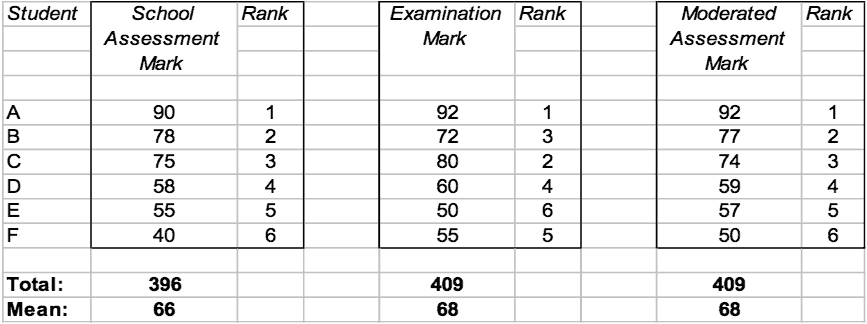No worries.
Yes, as part of the moderation process, your final rank in a particular subject is used alongside Examination Marks (i.e. marks received on the HSC exam of a particular subject) of other students in your cohort in determining your Assessment Mark.
Essentially, the highest Assessment Mark is adjusted to equal the highest Examination Mark of any student in your cohort. This means that the student with the highest rank will receive the highest Examination Mark achieved by any student in their cohort as their Assessment Mark. Similarly, the lowest Assessment Mark is adjusted to equal the lowest Examination Mark of any student in your cohort, meaning that the student with the lowest rank will receive the lowest Examination Mark achieved by any student in their cohort as their Assessment Mark. In the case of other ranks, the Assessment Mark will not equal its equivalent Examination Mark. However, it will be similar. Consider the following example from NESA:

As you can see, the highest Assessment Mark was adjusted to equal the highest Examination Mark (92). The lowest Assessment Mark was also adjusted to equal the lowest Examination Mark (50). However, the Assessment Mark for the student ranked third (74) is not identical to the third-highest Examination Mark (72), although it is similar.
Improvement is always welcome, so you are definitely right to identify that enhancing your performance as you progress through the rest of year 12 will ultimately reflect in your HSC exam performance.

